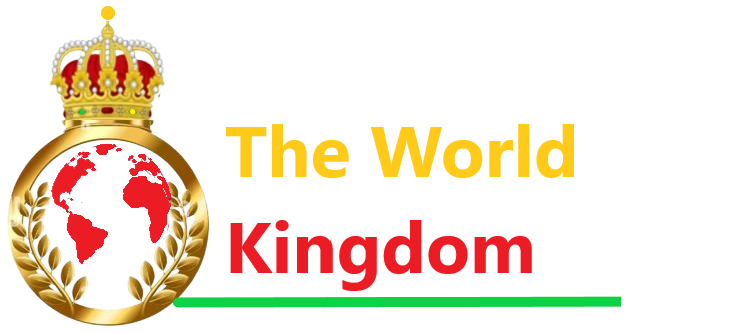Global Initiatives for the Protection and Well-being of Children and Women
The World Kingdom is committed to secure, promote, and uphold the fundamental rights and holistic development of all individuals under the age of 18 in all countries and achieving gender equality by giving women the freedom, tools, and opportunities (education, health, economic, political) to have power over their own lives, make choices, and reach their full potential, free from discrimination and violence, fostering self-worth, and ensuring equal status in all societal spheres. Global Protection and Well-being of children and Women are administered and governed by the “Emperor of the World and King of Justice” or the “Empress of the World and Empress of Justice”, in collaboration with Secretariat Council and all heads of state, governments, justice systems, organizations, businesses, entrepreneurs and citizens of all countries. These include:
- Building, managing and operating World Kingdom healthcare facilities and providing healthcare services in all countries. These facilities may include hospitals, outpatient care centres, clinics, pharmacies, dental clinics, veterinary, and specialized facilities such as nursing homes and mental health centres and offer free healthcare (hospitals) to the public in all countries, including urgent or immediately necessary care, such as in emergency rooms and provide for every newborn, a “Baby Gift Box” to the parents at the hospitals. This kit contains essential items for the baby and represents the support offered by Your Imperial Majesty Emperor of The World and Emperor of Justice Evrad Kounchou Kameugne (the Founder and Owner).
- Building and managing the World Kingdom of Educational Institutions, which encompasses schools, colleges, online courses, and universities worldwide, and by providing free primary education and supplying children with books, pencils, school bags, and free school meals, these educational institutions and gifts represent the support offered by Your Imperial Majesty Emperor of The World and Emperor of Justice Evrad Kounchou Kameugne (the Founder and Owner). It integrates the teachings of faith into the rest of the curriculum to educate the whole person (mind, body, and soul). Students are encouraged to develop their full potential and strive for excellence in all aspects of their lives, whether academic, spiritual, or extracurricular.
- Implement a modern system of universal social benefits or security in all countries and pay benefits to those entitled to them, without hope of reimbursement by the state or country of origin. The state or government of a country will not be responsible for paying social benefits to its citizens.
- Protecting children from violence, abuse, exploitation and terrorism.
- Implementing educational safety measures and train staff in the duty of prevention, teaching children the “RUN, HIDE, REPORT” method in case of an emergency.
- Implementing rigorous safety measures in school or college or university prayer spaces, as well as safeguarding, inclusion, and supervision policies to safeguard the physical and emotional well-being of children and students.
- Ensuring that educational rules do not discriminate on the basis of religion or belief, dehumanization, race, ethnic origin, religion, gender, age or disability.
- Implementing policies that address radicalisation, foster a positive environment promoting tolerance, and educate children on safety and critical thinking.
- Promoting awareness and understanding of children’s rights, ensuring that children are treated with respect and dignity.
- Innovating, expanding access to quality learning and free primary education, free public transport for children, free school meals for all, the obligation to extend access to secondary education to all with the gradual introduction of free secondary education. This applies to all children (5-15 years), regardless of race, gender, disability, detention status, immigration and refugee status.
- Establishing public schemes and benefits to help working parents cover childcare costs or those unable to provide childcare, such as tax free childcare, costs for nurseries, childminders, nannies, or after-school clubs, free childcare entitlement.
- Providing assistance with the World Kingdom tax-backed loans, finance, procurement and contracting, construction, building renovations, equipment, digital connectivity, and infrastructure, technology maintenance, and supply of raw materials needed for the construction of buildings for education, health and children’s accommodation.
- Advocating for increased investment and stronger policies to support early childhood development.
- Supporting children through various policies and programs, including education, childcare, and child protection, aiming to ensure equal opportunities and safeguard their well-being.
- Advocating for children’s rights at local, national and international levels, raising awareness of the challenges faced by children.
- Implementing child protection coordination policies that ensure children are protected and any complaints are reported and assessed.
- Supporting disadvantaged and vulnerable children, and ensuring access to services like childcare and early years education.
- Enhancing online safety for children through a variety of means, including providing advice to parents, offering educational resources, preventing child bullyingand advocating for policy changes.
- Providing resources and advice for parents on how to support their child’s mental health, including tips on communication, managing difficult behaviours, and seeking professional help.
- Ensuring that children under 14 years old cannot be charged with a crime. When children aged 12 to 14 break the law, they are dealt with through the youth justice team and social care systems, focusing on welfare and prevention of future offending. Measures are put in place to address the child’s behaviour and circumstances and Children under the age of 12 cannot be arrested, charged with a crime, or imprisoned, because they are below the minimum age of criminal responsibility.
- Ensuring the implementation in all countries, the youth justice team, also known as a Youth Offending Team, is a professional service that supports young people aged 12 to 17 who have committed offenses or are at risk of delinquency. Its main objective is to reduce youth delinquency by providing support, prevention programs, and interventions aimed at helping young people understand the causes of their behavior, grasp its consequences, and avoid reoffending. These teams are multidisciplinary and include social workers, probation officers, and other specialists and the Juvenile court, also known as a youth court, is a court that handles legal cases involving minors (usually between the ages of 14 and 18) accused of crimes. These courts are designed to be less formal than adult criminal courts and prioritize the rehabilitation and well-being of the child. Ensuring that Judges and magistrates in juvenile courts receive specialist training on child development, communication with young people, and alternative sentencing options. Juvenile court proceedings are closed to the public to protect the privacy of the young person involved and are often less formal than adult criminal proceedings, with a greater emphasis on creating a less intimidating environment for young people.
- Helping children in disaster situations and orphans by sponsoring education and providing school supplies, such as pencils, books, backpacks, as well as food, water, shelter, medical aid and care.
- Ensuring access to quality education and skills development, particularly in emergency situations.
- Providing access to safe drinking water and sanitation, and promote good hygiene practices.
- Providing vaccines, promoting healthy diets, and combating malnutrition.

- Supporting the construction and development of water resource infrastructure and bringing abundant clean water to the world and ensure that no owner or tenant living in a residential property or domestic dwelling should have to pay their water bills (free domestic water supply) and water resources represent Your Imperial Majesty Emperor of The World and Emperor of Justice Evrad Kounchou Kameugne (the Founder and Owner).
- Working with states to establish community counseling centers, which are a network of independent, free and confidential charities offering expert advice on a wide range of issues, including financial, debt, housing, legal and social.
- Ensuring women’s property rights through comprehensive legislation that guarantees equal rights in ownership, control and disposal of assets, regardless of their marital status.
- Addressing food security for women primarily through general anti-poverty measures, the targeted Healthy Start scheme for pregnant women and new mothers, and in an international context, through specific gender-focused aid programs.
- Offering budget loans that can help finance essential items such as clothing or shoes.
- Providing financial aid and loans, grants, scholarships, and fellowships to support individuals and organizations.
- Supporting apprenticeships internships and traineeships by funding and promoting them and providing resources for employers and apprentices, including financial incentives and advice on how to take on apprentices.
- Promoting gender equality, end domestic violence against women and children and provide resources. Improving girls’ education by reducing infant and maternal mortality through family planning, contraception, abstinence, considering adoption and policies to have fewer children in overpopulated countries.
- Reaching children in challenging circumstances like poverty, conflict-affected areas, or with disabilities.
- Providing legal safeguards and embedding legal safeguards in the system. Empowering families with resources, training, and support to create nurturing environments at home.
- Developing research and evidence-based practices to inform policy and programming.
- Promoting women’s rights and gender equality by setting global standards and norms, providing technical support to member states, and coordinating global efforts to address issues such as violence against women, economic disparity, and political underrepresentation.
- Collecting and analyzing data and statistics on gender equality to inform policy, track progress towards goals such as the Sustainable Development Goal (achieve gender equality and empower all women and girls), and hold governments accountable for their commitments.
- Ensuring women have income security, decent work, and economic autonomy. This can be achieved through vocational training, support for business development, access to financial services such as loans and savings accounts, social security benefits for those who are entitled to them, and advocacy for equal pay and opportunities in the workplace.
- Working towards the prevention and elimination of all forms of violence, including domestic violence, and harmful practices such as female genital mutilation and child marriage.
- Providing support for specific needs, such as fertility issues, unplanned pregnancies, and sexual health problems.
- Campaigning for better access to high-quality, well-financed sexual and reproductive health services, and advocate for the rights of individuals to make informed choices about their bodies.
- Offering confidential and clear information and advice on contraception, sexual health and pregnancy planning, often through health facilities and clinics.
- Providing support, protection, and representation, including services for missing persons, advocacy on family policy, and programs that raise awareness and coordinate national efforts on family well-being
- Assisting families separated by conflict or disaster, offering family enrichment programs, supporting family carers, and advocating for policies that address the needs of families and protect children’s rights.
- Advocating for policies and programs to improve family life, addressing issues like poverty, education, health, housing, and social protection.
- Ensuring the implementation of social benefits and services in all countries, by recognizing social benefits and services as a fundamental right.
- Participating in job postings, candidate screening, and interview scheduling and recruiting and placing engineers and professionals.
- Protecting the rights of women, and children, and supporting victims of abuse and crime.
- The “Emperor of the World and King of Justice” or the “Empress of the World and Empress of Justice” may order at any time a global audit and investigations of the Fund or poor governance of its establishments to clarify governance issues. The announced objective is to shed light on governance within its institutions. The overall audit and investigations could lead to structural reforms and new governance, to assure citizens around the world the proper use of public resources. The World Kingdom intends to strengthen public control, transparency and the effectiveness of its institutions.












